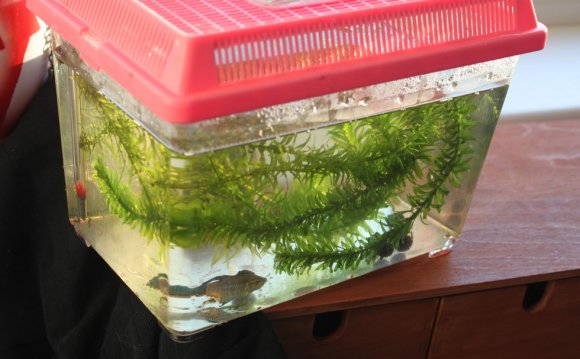
If any fish were to suddenly stop eating, several factors should be considered.
1. Is the fish an infrequent feeder?
Breaks in feeding can be quite normal, in particular for predatory
species.
2. When did it last feed and did it gorge at that feed?
If the fish had possibly eaten a large meal it may well be satiated and
not need to feed for a while.
3. What is the general condition of the fish?
If the fish has a good body-weight and looks 'clean' externally it may
have an internal problem. This could be a parasite or a bacterial/viral
infection. Sometimes it is possible for a fish to have a mild infection
with the only obvious symptom being a reluctance to feed for a few
weeks. Mild cases may not even require treating as the fish's immune
system may naturally be able to fight off the infection.
A fish in good condition should be able to withstand not feeding for a
couple of weeks, particularly if it is a large heavy feeder like an
oscar, but this is dependant on species.
4. Has the water quality been consistently good? What is it now?
Fluctuations in water quality could cause the fish to go off-feed and
the stress from the water quality fluctuating could have sparked off an
infection or parasite. Carry out a large water change and if the fish
starts showing interest in food, you'll know what the problem is. Some
fish stop eating in cold conditions so check the temperature of the water
5. Is the fish breathing normally? Does it have a heavy mucus coat?
Does the fish seem to be exhibiting abnormal behaviour?
All of the above could be the onset of a stress reaction or indeed a
parasite may be present, but not in sufficient numbers to be obviously
visible. At the NMA we would take a skin scrape and gill snip (done
under anaesthetic) and check with a microscope for any parasites.
6. Has there been anything unusual happening around the room that the
tank is in recently?
A change in normal lighting hours, the room being busier than normal,
loud music, a change to the usual tank maintenance routine - all may
simply have 'upset' the fish and it's stress reaction is simply not to
feed.
7. Has the fish entered a reproductive phase?
Fish going into breeding season quite often have their 'minds' on other
things and may feed erratically or not at all for short periods.
8. Is the fish bloated around the abdominal area at?
If your fish does go off its food and symptoms include a swollen abdomen/stomach
then there is a possibility that is has got a blocked digestive system/intestine. The best
thing you can do is cease feeding for a few days, even up to a week. Hopefully the
fish will manage to clear its intestine of any blockages
If the oscar isn't ill, the water quality and set-up are all good, and
providing it is in good condition to start with, not feeding for a
couple of weeks shouldn't be a problem.
To re-start the oscar feeding again treats can help, in particular live
foods such as live river shrimp can help stimulate interest. If you can't obtain
live shrimp, I have found that Oscars will often eat frozen shrimp or krill when
they are turning their noses up to everything else.
Remember that adult Oscars do not need to eat as much as they did when they were
juvenile. If your fish is not eating then it is probably a good idea to only feed every
other day, or even every three days. Your fish will be perfectly okay, you may find
that he will eat properly if you reduce feeding. Oscars can be extremely fussy and









